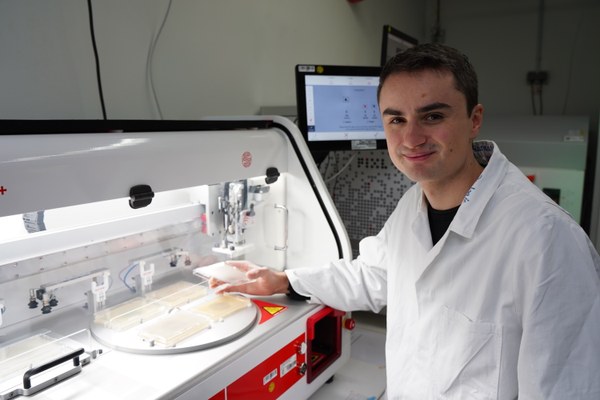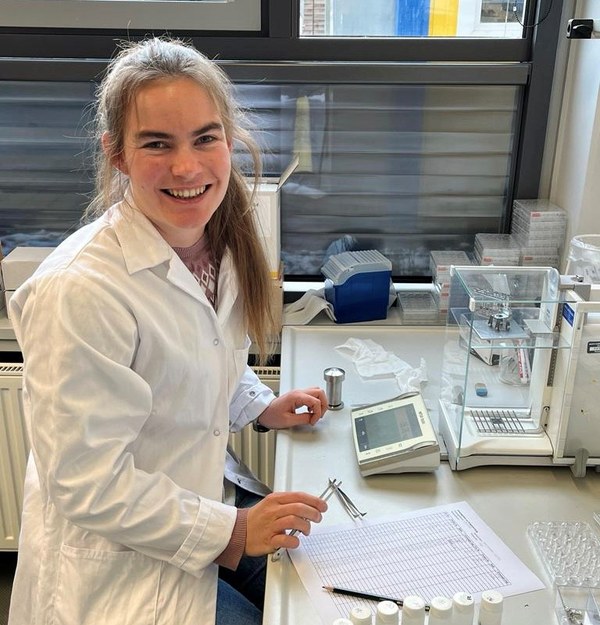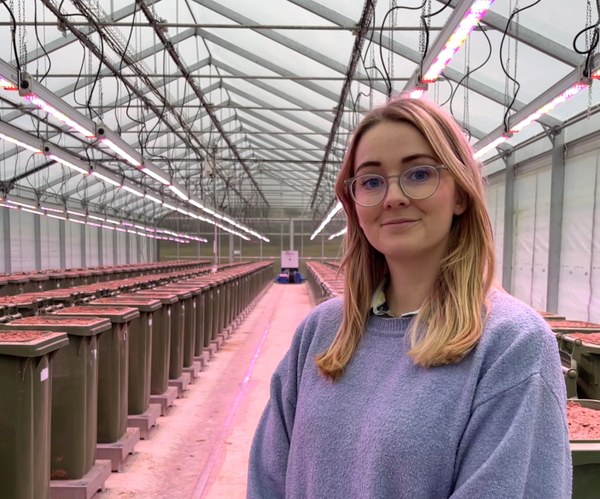iFZ Junior Researchers
- iFZ Masters 2023
-

Michel Brück in the laboratory at a high-throughput screening robot, which enables the cultivation of bacteria and the testing of many different small RNAs at the same time (Photo: Virginia Geisel).
In his Master's thesis, Michel Brück dealt with small synthetic ribonucleic acids (RNAs) in the model bacterium Escherichia coli as part of a joint project between JLU Giessen and the Max Planck Institute for Terrestrial Microbiology (Marburg). Small RNAs (sRNAs) are molecules that are responsible for the fine control of gene expression. Using automation and high-throughput methods, Michel Brück was able to produce and characterize a large number of synthetic sRNAs. The focus was on the length and structure of these synthetic molecules. The aim of the project is to develop reliable rules for the rational design of regulatory RNAs in order to be able to regulate the production of specific proteins in a targeted manner in the future.

Flora Mückschel in the laboratory weighing samples for mineral analysis (Photo: Erika Schick).
Wastewater contains many nutrients that can be used as fertilizer for crops. Conventional wastewater treatment plants use microorganisms for biological wastewater treatment. However, this requires energy-intensive aeration. Certain microalgae, on the other hand, accumulate nutrients such as nitrogen and phosphorus from wastewater very effectively without the need for aeration. Flora Mückschel investigated the potential of such microalgae biomass as a source of nutrients for crops as part of her Master's thesis (Crop Sciences course). The results of the experimental use of microalgae from wastewater treatment as an organic fertilizer for wheat plants are promising.

Luisa Zazzi in the foil house of the DroughtSpotter XXL high-throughput phenotyping platform (Photo: Luisa Zazzi).
Climate change is leading to increasingly frequent and intense periods of drought and jeopardizing the yield security of our crops. Conventional methods for breeding drought-tolerant plants are still imprecise, time-consuming and costly. In her master's thesis, Luisa Zazzi used new high-throughput phenotyping to simulate drought stress in wheat and to identify and validate plant traits associated with improved drought tolerance. Many of these traits showed close correlations with increased grain yield under drought stress conditions already at early vegetation stages. These results directly contribute to facilitating and accelerating the development process of adapted wheat varieties in the future.
For further information:
Dr. Edwin Weber, iFZ Management, JLU Giessen
info@ifz.uni-giessen.de
